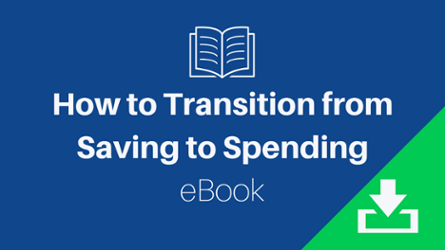Managing Transition: The Key to a Successful Start in Retirement
%20-%20Odysseus%20Image%20-%20JPEG-%202-28-2020.jpg?width=945&name=Image%20-%20Blog%20Image%20-%20Kevin%20-%20Managing%20Transition%20The%20Key%20to%20a%20Successful%20Start%20in%20Retirement%20(updated)%20-%20Odysseus%20Image%20-%20JPEG-%202-28-2020.jpg) Life can be summed up through the transitions that we experience. Whether these transitions are rewarding, like marriage or becoming a parent, or challenging, like marriage or becoming a parent, all involve an ongoing process of emotional and financial adjustment. However, when in a state of change, we often fall victim to our own weaknesses. The stress of these major life experiences can be too much for our minds and our wallets to comprehend. We are not built to only think logically. We embrace our emotions and when overwhelmed by these emotions, can make the wrong decision.
Life can be summed up through the transitions that we experience. Whether these transitions are rewarding, like marriage or becoming a parent, or challenging, like marriage or becoming a parent, all involve an ongoing process of emotional and financial adjustment. However, when in a state of change, we often fall victim to our own weaknesses. The stress of these major life experiences can be too much for our minds and our wallets to comprehend. We are not built to only think logically. We embrace our emotions and when overwhelmed by these emotions, can make the wrong decision.
Savers Dilemma.
We’ve spent our whole lives under the assumption that to have a financially secure life, we must save save save. Growing up, we kept piggy banks and went diving into our couches to look for loose change. We read articles with headlines like “10 Reasons Why You Should Save Money” or “The Secret to Saving Money.” And yet, when approaching retirement, the same mind-set that once worked so well when building our nest egg, now runs the risk of damaging our quality of life in retirement. Who would have thought that spending money could be so hard? For many people who have become accustomed to the savers-complex, spending our savings can be an incomprehensible and foreign concept.
BENEFITS: Social Security: Now or Later?
Consider a Commitment Device.
Thomas Schelling, a pioneer in the field of Behavioral Economics, wrote about using a commitment device to get someone to do something that they want to do, but lack the willpower to implement on their own. The best-known example of this strategy can be found in Homer's epic poem, The Odyssey, when Ulysses ties himself to his ship's mast to avoid being lured onto the rocks by Sirens' seductive song. By using a commitment device, Ulysses could achieve his goal of hearing the Sirens' song without leaping to his death, a decision that would not have been in his long-term self-interest. He needed this tool to sail through the Sirens’ Island and return to his home land. Without this commitment device, Ulysses would have lost control and given into temptation.
Now, how does this link back to our topic of retirement? Well, for the newly retired, or any of us looking for tools to help us use our nest egg for what it's meant to do: provide us with a measure of financial security so we can relax and enjoy our post-career life, I can offer 3 Retirement Withdrawal Strategies. Think of these strategies as a personal commitment device, that can ensure prudent spending while allowing us to maintain a sense of ease and comfort through this time of change.
Much like utilizing a financial advisor, planning for these moments of change can help reduce the risk of being tricked by Sirens' song and keep us on track to reach our long-term goals. Get your commitment device for free by clicking the button below and downloading our eBook on How to Transition From Saving to Spending: 3 Retirement Withdrawal Strategies.
Kevin McVeigh, CFA is a Managing Director and Partner at Exchange Capital Management, a fee-only, fiduciary financial planning firm. The opinions expressed in this article are his own.
Comments
Market Knowledge
Read the Blog
Gather insight from some of the industry's top thought leaders on Exchange Capital's team.
Exchange Capital Management, Inc.
110 Miller Ave. First Floor
Ann Arbor, MI 48104
(734) 761-6500
info@exchangecapital.com




